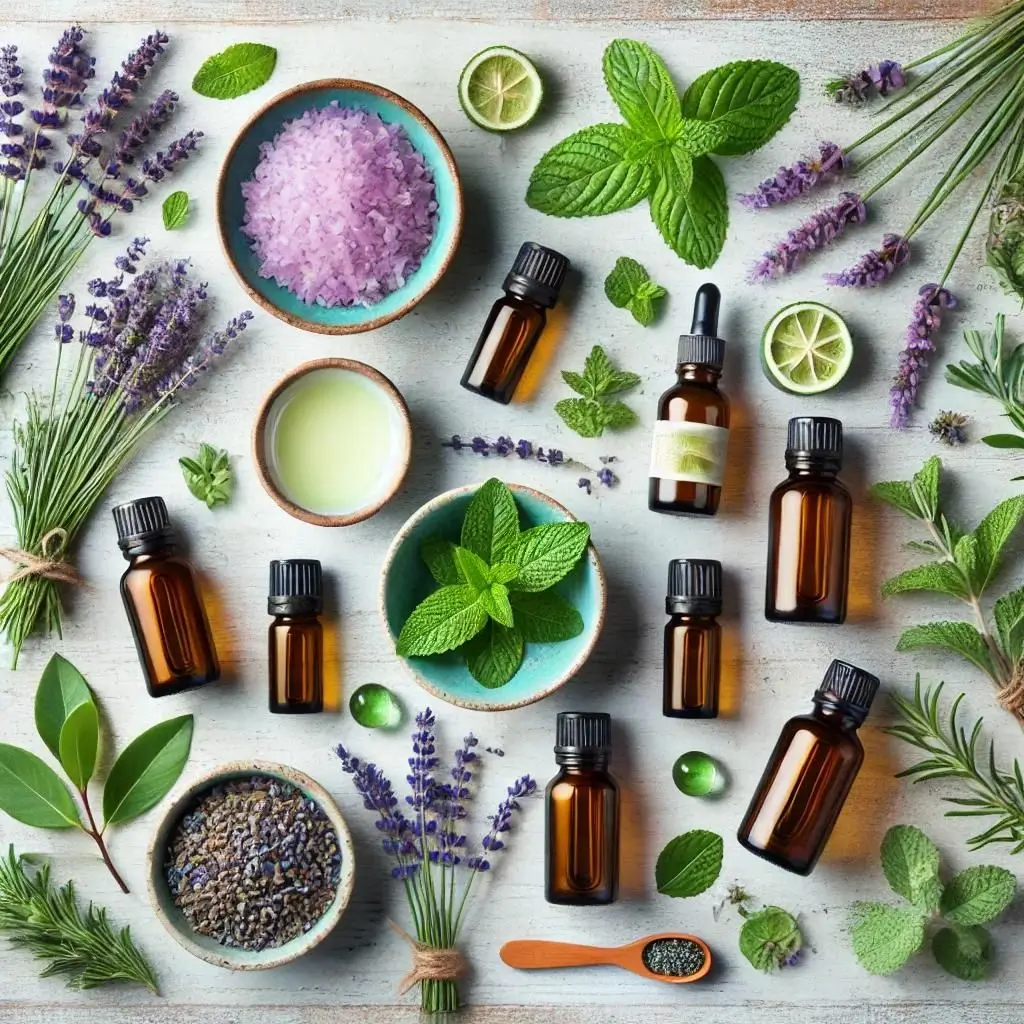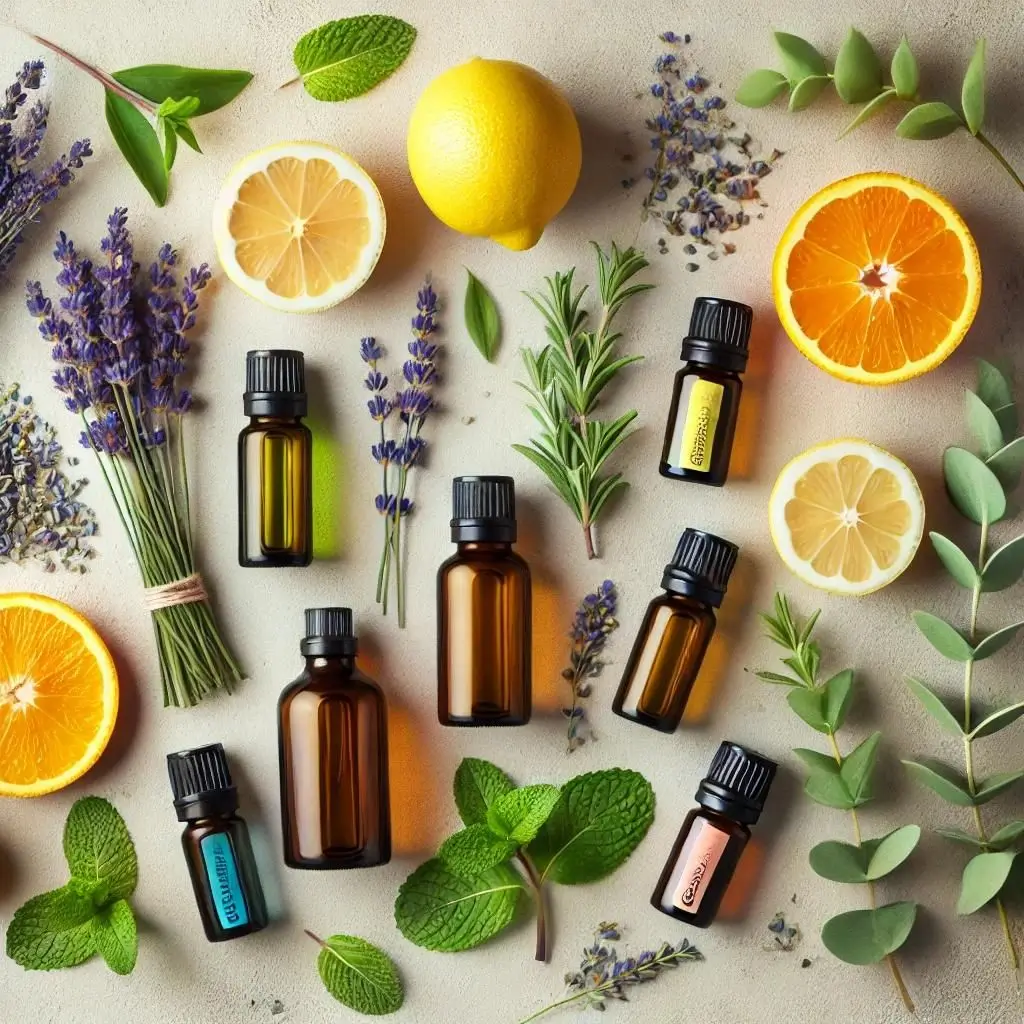Swollen glands, also known as lymph nodes, can be a sign of infection or inflammation in the body. Essential oils are a natural remedy that many people use to reduce swelling and discomfort associated with swollen glands. This article will explore the benefits, application methods, and precautions of using essential oils for swollen glands.
What essential oils are good for swollen glands?
Several essential oils are known for their anti-inflammatory and lymphatic drainage properties, making them effective for swollen glands. Here are some of the most beneficial ones:
- Tea Tree Oil: Known for its anti-inflammatory and antimicrobial properties.
- Lavender Oil: Offers soothing and anti-inflammatory benefits.
- Eucalyptus Oil: Helps reduce inflammation and congestion.
- Peppermint Oil: Provides a cooling effect and reduces swelling.
- Lemon Oil: Supports lymphatic drainage and detoxification.
| Essential Oil | Key Benefits |
|---|---|
| Tea Tree | Anti-inflammatory, antimicrobial |
| Lavender | Soothing, anti-inflammatory |
| Eucalyptus | Reduces inflammation, decongestant |
| Peppermint | Cooling effect, reduces swelling |
| Lemon | Lymphatic drainage, detoxification |

How do essential oils help reduce swelling in glands?
Essential oils help reduce swelling in glands through their anti-inflammatory, antimicrobial, and lymphatic drainage properties. When applied topically, these oils penetrate the skin and help:
- Reduce inflammation in the affected area.
- Fight off infections causing the swelling.
- Promote lymphatic circulation and drainage.
Using essential oils in massage or compress can enhance these effects by stimulating blood flow and providing relief from discomfort.
What are the best methods to apply essential oils for swollen glands?
There are several effective methods to apply essential oils for swollen glands:
Topical Application
- Dilute essential oils in a carrier oil like coconut or jojoba oil.
- Massage gently around the swollen area in a circular motion.
Compress
- Add a few drops of essential oil to a bowl of warm water.
- Soak a cloth in the mixture and apply as a compress to the swollen glands.
Diffusion
- Use an essential oil diffuser to inhale the therapeutic vapors.
These methods ensure that the essential oils are absorbed effectively, providing the maximum benefit.
Can essential oils for swollen glands be used on children?
Essential oils can be used on children for swollen glands, but with caution. It’s essential to:
- Dilute oils properly: Use a higher dilution ratio (1-2 drops of essential oil in 1 tablespoon of carrier oil).
- Choose gentle oils: Lavender and chamomile are safe options.
- Avoid certain oils: Peppermint and eucalyptus should be avoided in children under six due to their strong menthol content.
Always consult with a healthcare provider before using essential oils on children.
Are there any side effects of using essential oils for swollen glands?
While essential oils are generally safe, they can cause side effects if not used correctly:
- Skin irritation: Undiluted oils can cause redness, itching, or a rash.
- Allergic reactions: Some individuals may be allergic to specific oils.
- Sensitivity: Prolonged use can lead to sensitivity in some people.
To minimize risks, always perform a patch test before full application and follow recommended dilution guidelines.
What precautions should be taken when using essential oils for swollen glands?
To safely use essential oils for swollen glands, consider the following precautions:
- Dilute properly: Essential oils should be mixed with a carrier oil to prevent skin irritation.
- Patch test: Apply a small amount of diluted oil to the skin to check for any allergic reaction.
- Avoid sensitive areas: Do not apply essential oils near the eyes or mucous membranes.
- Consult a professional: Seek advice from a healthcare provider, especially for pregnant women, children, or those with medical conditions.
How often should you use essential oils for swollen glands?
The frequency of using essential oils for swollen glands depends on the severity of the swelling and individual response:
- Acute swelling: Apply 2-3 times a day until the swelling reduces.
- Chronic issues: Use once daily or as needed for maintenance.
Avoid overuse, as it can lead to skin sensitivity or other adverse effects.
What are the best essential oil blends for swollen glands?
Blending essential oils can enhance their therapeutic effects. Here are some effective blends for swollen glands:
- Anti-inflammatory Blend:
- 2 drops of Lavender
- 2 drops of Tea Tree
- 2 drops of Eucalyptus
- 1 tablespoon of carrier oil
- Lymphatic Drainage Blend:
- 3 drops of Lemon
- 2 drops of Peppermint
- 2 drops of Frankincense
- 1 tablespoon of carrier oil
Mix these blends and apply as a massage or compress for best results.
How long does it take for essential oils to work on swollen glands?
The effectiveness of essential oils on swollen glands can vary:
- Immediate relief: Some oils like peppermint may provide quick relief due to their cooling effect.
- Reduction in swelling: Generally, it may take a few days of consistent application to notice a significant reduction in swelling.
Patience and regular use are key to achieving the desired results.
Can essential oils prevent swollen glands?
Essential oils can help prevent swollen glands by:
- Boosting immunity: Oils like tea tree and lemon support the immune system.
- Reducing stress: Lavender and chamomile help lower stress levels, which can impact gland health.
- Detoxifying the body: Regular use of lymphatic drainage oils can promote overall lymphatic health.
Incorporate these oils into your routine to maintain healthy glands and prevent swelling.
Conclusion
Using essential oils for swollen glands can provide natural relief through their anti-inflammatory, antimicrobial, and lymphatic drainage properties. By choosing the right oils, applying them correctly, and taking necessary precautions, you can effectively manage and prevent swollen glands. Always consult with a healthcare provider if you have any concerns or pre-existing conditions.



